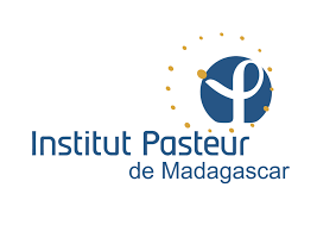Neuroradiologist and our trustee Dr Reena Dwivedi recently returned from Madagascar, where she delivered ultrasound training in collaboration with research team members from the Institut Pasteur Madagascar and the University of Oxford.
A Unique Ultrasound Research Study
The “Projet d'échographie pour décrire la morphologie des bubons dans la peste bubonique à Madagascar” (Ultrasound project to describe the morphology of buboes in bubonic plague in Madagascar) is a unique study, aiming to develop an understanding of how plague buboes evolve with treatment in Madagascar, using portable ultrasound.
The word “bubo” describes the painfully swollen lymph nodes that occur in patients infected with the disease.
Typically, buboes are assessed by health workers on physical examination and with hand-held callipers to measure their size. It is not possible to see what happens “inside” the bubo when the patient is being treated.
Worldwide Radiology was very honoured to have been invited by the study teams in Oxford and Madagascar to collaborate on this project, based on our expertise in delivering point of care ultrasound training for other infectious diseases research projects in Africa.
In collaboration with the Institut Pasteur Madagascar and the team from the University of Oxford, Dr Reena Dwivedi co-designed the ultrasound research study protocol and the ultrasound training program for the healthcare research teams in Madagascar.
Reena worked with the teams to build a training programme which could also be relevant and useful for health workers in Madagascar, beyond using it for research.
Finally, this January, Reena was able to venture out to Madagascar to deliver the face to face training in Ambositra, an approximate 6hrs 30mins bumpy drive away from the capital Antananarivo.
Together with Dr Tojo Rémi Rafaralahivoavy, a radiologist based in Madagascar, training was delivered predominantly in French and Malagasy languages with classroom and hands-on sessions. “It was a joy also to involve Radiologist Dr Tojo as part of this network. I was looking forward to understanding his take on radiology in Madagascar”, shares Reena.
This first training session was followed by several days of travelling to rural sites, and supervising healthcare workers scanning buboes in patients with suspected plague.
“Our work continues: all ultrasound images will be reviewed remotely and the data analysed. This will be a unique dataset as there has been very limited work for imaging in plague”, shares Reena, “More importantly, our work will also improve patient care by allowing clinical teams to be better informed about changes with plague treatment, promoting a safe and quality approach to management.”.
Exploring the Madagasy Healthcare System
“Before leaving for Madagascar, the most common reaction amongst those I knew was one of surprise that plague still exists!”, shares Reena.
Plague is an ancient disease and mostly understood in Western settings as ‘The Black Death’ from the 14th century.
“Within Madagascar, plague is endemic, meaning cases are reported annually between November to April – in recent times, the country endured a significant outbreak in 2017.”
“This was a fantastic opportunity to spend time with the team, understand the Malagasy healthcare system and how people access care, in addition to making some wonderful friends.”, she shares.
"The country is diverse and beautiful, having a chance to meet patients and work with health staff has been a true privilege."


Improving Patient Care in Madagascar
Through the collaboration with Institut Pasteur Madagascar and the University of Oxford, Dr. Reena Dwivedi is not only advancing the understanding of plague in Madagascar but also equipping local healthcare providers with essential skills and tools, ultimately improving healthcare access and patient care in this region.
“I have made some fantastic enduring friendships through this project and look forward to returning! Madagascar has truly demonstrated how nature, diversity of cultures and incredible people sharing lived experiences can really make working here a treasured experience”, adds Reena.
.png)





















Comentarios